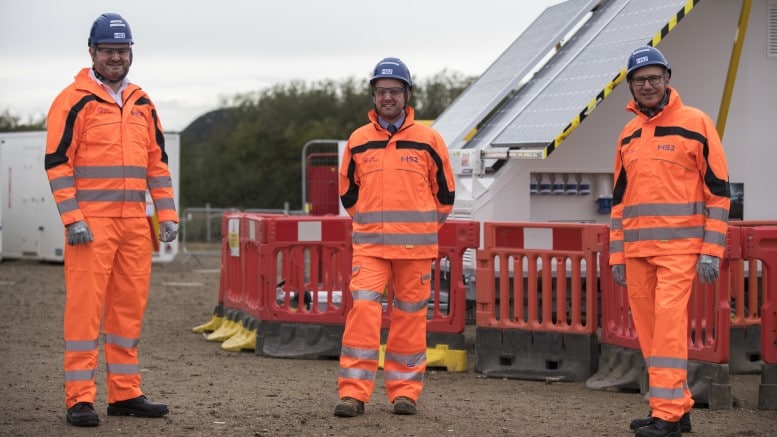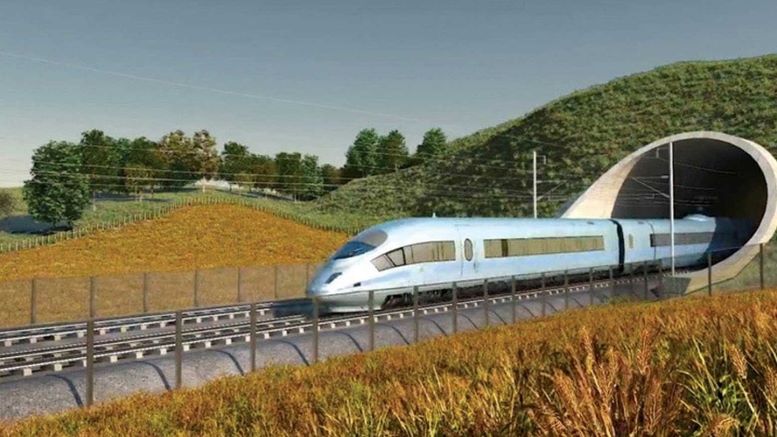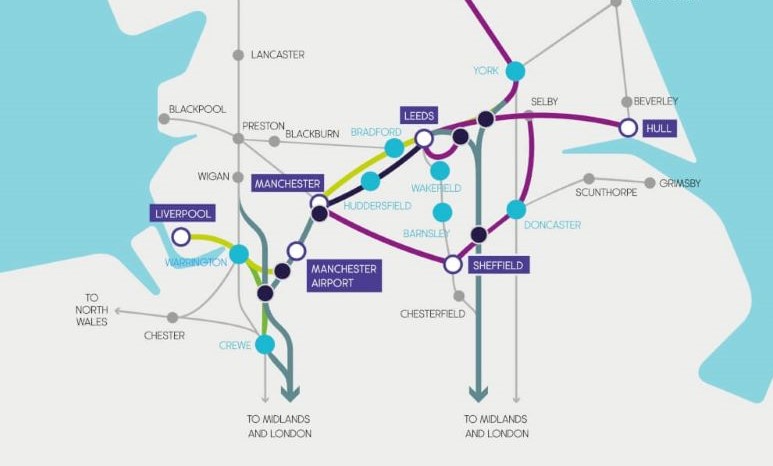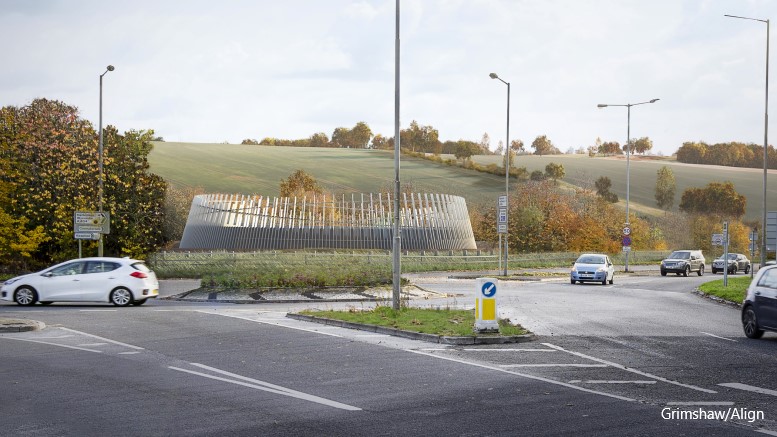
HS2, which is now building Britain’s new high-speed railway line from London to the Midlands and the North, has been trialling solar and hydrogen-powered welfare cabins across its work locations as it seeks to move towards greener construction sites.
The sites, at Camden, West Ruislip and Uxbridge, are run by enabling and main-works civils joint ventures Costain-Skanska and Skanska-Costain-Strabag.
The units under trial are EasyCabin EcoSmart Zero, designed and manufactured by British company AJC Trailers and supplied by national hire company GAP Group. They are the world’s first solar and hydrogen-powered welfare units, combining solar and hydrogen power to eliminate carbon emissions from construction sites, and are set to be rolled out further across the HS2 project.
Over a 21-week period on HS2 sites in Camden, Ruislip and Uxbridge, 16 of the cabins saved 112 tonnes of carbon emissions – the equivalent of the amount that would be absorbed by more than 3,367 trees over a whole year. In comparison, a standard diesel generator running for the same length of time would have used 40,000 litres of diesel fuel.

To see a solar cabin for himself, HS2 Minister Andrew Stephenson visited the construction site at West Ruislip, where a haul road is being constructed to link to the portal of the Northolt Tunnel West, into which two tunnel boring machines will be launched in 2022.

Impressed, the Minister said: “As we build back better from Covid-19, it is great to see how HS2 is using first class solar and hydrogen-powered staff welfare pods to cut carbon emissions while supporting workers on its construction sites.
“Not only are these British-made pods supporting hundreds of jobs, but it is a great example of how HS2 is realising our ambition to be one of the most environmentally-responsible projects ever delivered in the UK, as we transition to carbon net zero by 2050.”
The hydrogen technology used in the cabins has been developed by scientists at Loughborough University. With zero emissions, solar and hydrogen power replaces traditional diesel-powered systems, reduces the overall carbon footprint of a construction site and, more importantly, improves the environment for communities in the vicinity of operation. The unit is nearly silent and emits only pure water vapour.

The cabins provide a kitchen, seating area, separate toilet and changing room for workers, with the power to run the heating, sockets, kettle and microwave coming instantly from the battery bank that is constantly fed by the built-in hydrogen fuel cell and solar panels.
AJC Trailers has been manufacturing trailers in the UK since 1964. For the past eighteen years, the company has focused its activities on designing and producing hybrid, sustainable welfare and power solutions for the construction sector under the EasyCabin brand. AJC Trailers employs 60 people in its manufacturing facility in Luton, Bedfordshire.
GAP Hire Solutions has experienced significant growth in recent years, enabling the company to offer a wide range of career opportunities, along with apprenticeship and graduate schemes, and local partnership networks including educational, employability and government initiatives such as ‘Developing the Young Workforce’.

HS2’s environment director Peter Miller commented: “HS2 is supporting the UK’s green economic recovery and ensuring the UK is on track to achieve its commitment to reach zero carbon emissions by 2050. We aim to dramatically cut carbon on our construction sites, and constantly challenge our supply chain to introduce innovations by using the latest green technology.
“With over 250 active work sites between London and Birmingham, we have a huge opportunity to roll out British-made products such as this solar powered cabin, to dramatically reduce the project’s carbon footprint, bringing environmental benefits to local communities as we build the railway.”





Be the first to comment